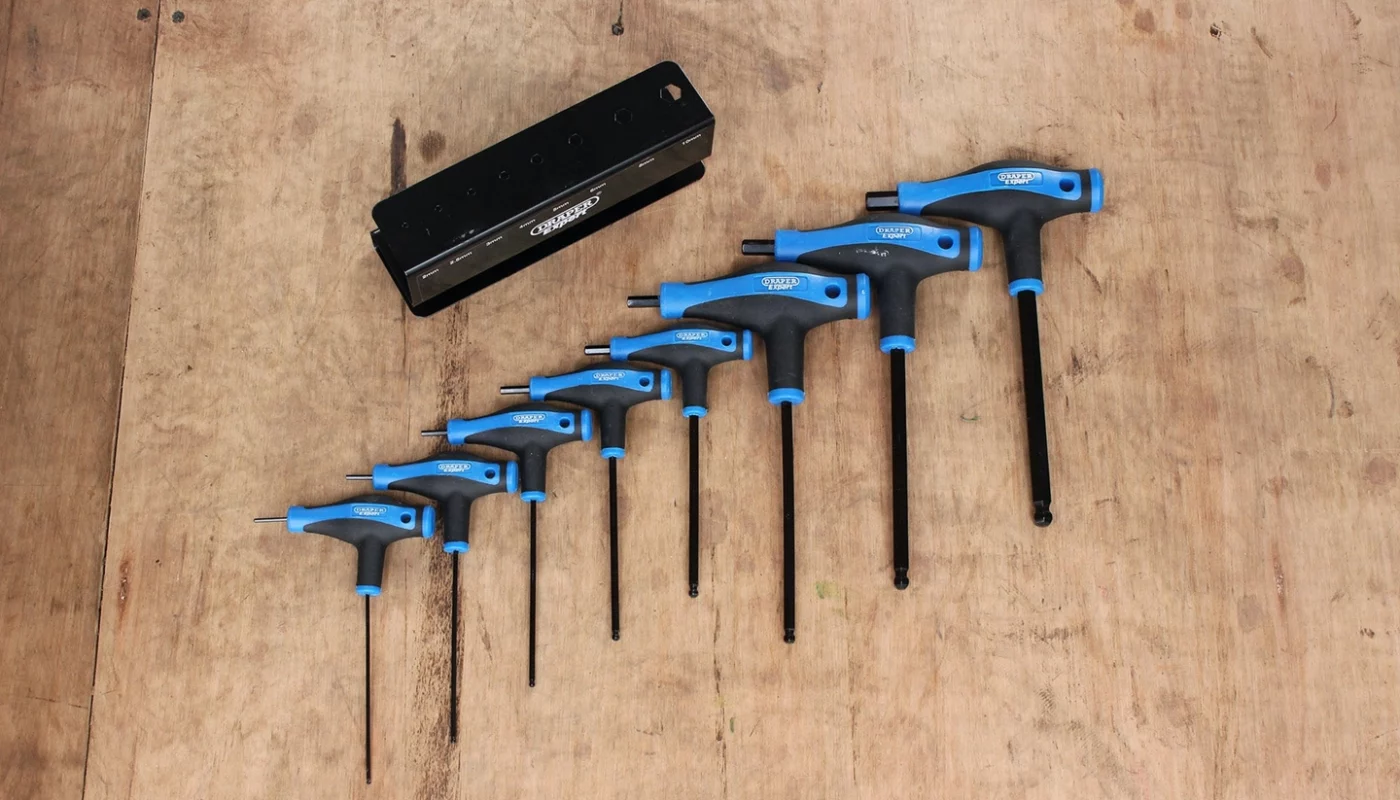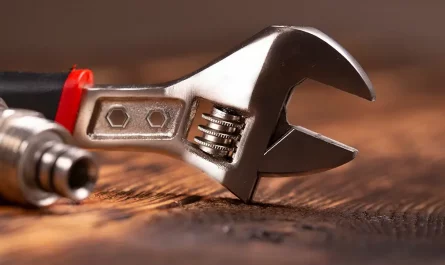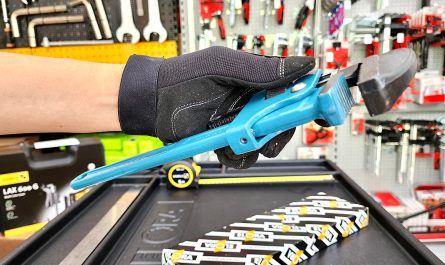In woodworking, furniture assembly, bicycle repair, machinery maintenance, and a wide range of mechanical and engineering applications, Allen wrenches—also known as hex keys—stand out as compact, reliable tools for driving bolts and screws with hexagonal sockets. Despite their minimalist design, these tools offer remarkable strength and control, making them indispensable for both professional tradespeople and everyday DIYers.
Whether you’re tightening machine components, assembling flat-pack furniture, or adjusting delicate equipment, the hex key provides exceptional torque in tight or recessed spaces. Lightweight, portable, and often bundled in sets, Allen wrenches prove that even the simplest tools can deliver impressive utility.
History and Evolution of Allen Wrenches
The concept of the hexagonal socket screw dates back to the early 20th century. In 1910, the Allen Manufacturing Company of Hartford, Connecticut, introduced a safety screw and accompanying hex key as a secure, tamper-resistant fastening method—hence the common name “Allen wrench.”
The popularity of hex keys grew rapidly due to their efficiency, simplicity, and ability to access screws with minimal clearance. Their hexagonal shape allowed for a greater surface contact area than traditional screwdrivers, reducing the likelihood of slippage and damage.
Today, Allen wrenches are manufactured in metric and imperial sizes, often bundled into folding sets, L-shaped wrenches, or T-handles for improved grip and leverage. They are now standard in toolkits across industries—from bicycle workshops and electronics labs to automotive garages and woodworking shops.
Types of Allen Wrenches and Their Applications
1. L-Shaped Hex Keys (Standard Allen Wrenches)

Description and Use:
The most common and recognizable form of hex key is the L-shaped wrench, designed with a hexagonal cross-section and two arms of unequal length. This distinctive L-shape provides dual functionality: the shorter arm allows users to apply greater torque in confined or tight spaces, while the longer arm offers extended reach, making it easier to access recessed or hard-to-reach fasteners. This versatility makes the L-shaped hex key an essential tool in both professional and household settings.
L-shaped hex keys are widely used in a variety of applications, ranging from assembling flat-pack furniture to adjusting machinery components on factory floors. They are indispensable for driving hex socket screws found in woodworking jigs, door hardware installations, bicycle repairs, and countless pieces of industrial equipment. Their compact, simple design makes them exceptionally durable, with no moving parts to wear out over time.
These wrenches are typically sold in organized sets, often bundled in folding holders or pouches. Many manufacturers enhance usability by offering color-coded handles or clearly marked size indicators, and most sets include a full range of both metric and SAE (imperial) measurements. This ensures compatibility with fasteners from around the world, making L-shaped hex keys a universal, space-saving solution for precision fastening needs in nearly any field.
Technical Characteristics:
- Material: Hardened steel, chrome vanadium, or stainless steel
- Sizes: Metric (1.5 – 10 mm), Imperial (1/16 – 3/8 inch)
- Features: Chamfered ends, corrosion resistance, available in sets
Price Range:
€5 – €20 (for a standard set)
2. Ball-End Hex Keys

Description and Use:
Ball-end Allen wrenches, a refined variation of the standard hex key, are designed to provide greater flexibility and accessibility during fastening tasks. What sets them apart is the rounded, ball-shaped tip on one end of the tool, which allows users to engage hex socket screws at an angle—typically up to 25 to 30 degrees off-axis. This capability is especially advantageous when working in tight, recessed, or awkward spaces where a direct, straight-in approach is not feasible.
These wrenches are widely favored by mechanics, bicycle technicians, maintenance workers, and assembly professionals who frequently work on machinery or components in confined environments. The ball end significantly speeds up the installation and removal process by reducing the need for precise alignment, making repetitive tasks more efficient and less fatiguing.
While the ball end offers excellent convenience, it is best suited for tasks requiring light to moderate torque. For high-torque applications or final tightening, using the straight end of the wrench is recommended to avoid damaging the tool or the fastener. Many ball-end hex wrenches are included in premium tool sets and often come with features such as color-coded handles, ergonomic grips, or long-arm designs to further enhance reach and comfort. For users seeking versatility and improved maneuverability, the ball-end Allen wrench is an indispensable addition to any toolkit.
Technical Characteristics:
- Material: Chrome-plated or black-oxide steel
- Sizes: Same range as standard hex keys
- Features: Angled access, color-coded grips, precision-machined ends
Price Range:
€10 – €30 (set)
3. T-Handle Hex Wrenches

Description and Use:
The T-handle hex wrench is a specialized tool designed for improved torque, control, and user comfort, making it ideal for demanding or repetitive fastening tasks. Its defining feature is a perpendicular handle—shaped like a “T”—attached to the shaft of the hex key. This crossbar grip allows for greater leverage, enabling users to apply more force with less strain, especially when tightening or loosening stubborn or large fasteners.
T-handle wrenches are particularly well-suited for workshop and industrial environments where efficiency and durability are key. They are commonly used in machinery maintenance, automotive repair, heavy-duty furniture assembly, and equipment servicing, where frequent or high-torque operations are necessary. The ergonomic grip reduces hand fatigue over long periods of use, offering a more comfortable and controlled experience than traditional L-shaped keys.
Many T-handle hex wrenches feature long shafts for extended reach into recessed or difficult-to-access fasteners. Some models also include ball ends for angled entry or dual-ended designs with a short, fixed arm for close-quarters work. Premium versions may offer cushioned grips, color-coded handles, or size markings for quick identification. Whether in a professional setting or a home workshop, the T-handle hex key is a go-to choice for users who value power, precision, and comfort in a single, reliable tool.
Technical Characteristics:
- Material: Steel shaft, plastic or rubber grip handle
- Length: Varies by size and application
- Features: Dual ends (ball-tip + straight), color-coded sizes, anti-slip handles
Price Range:
€15 – €50 (individual or set)
Conclusion
Despite their humble appearance, Allen wrenches (hex keys) are indispensable precision tools found in nearly every toolbox—from professional workshops to household drawers. Their ability to efficiently drive hex socket fasteners with accuracy and minimal tool slippage has made them a global standard in furniture assembly, mechanical maintenance, and detailed construction work.
From the simplicity of the standard L-key to the added leverage of T-handles and the versatility of ball-end or folding sets, hex keys come in a variety of formats to meet every fastening challenge. They’re durable, compact, and easy to organize—proof that sometimes, the smallest tools have the biggest impact. Whether you’re building furniture, tuning a bike, adjusting a jig, or working on industrial equipment, Allen wrenches provide the control and precision needed to get the job done right.



